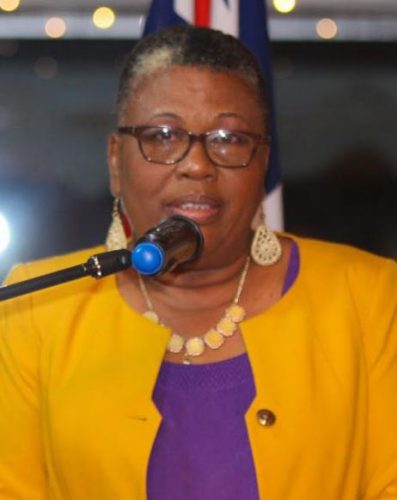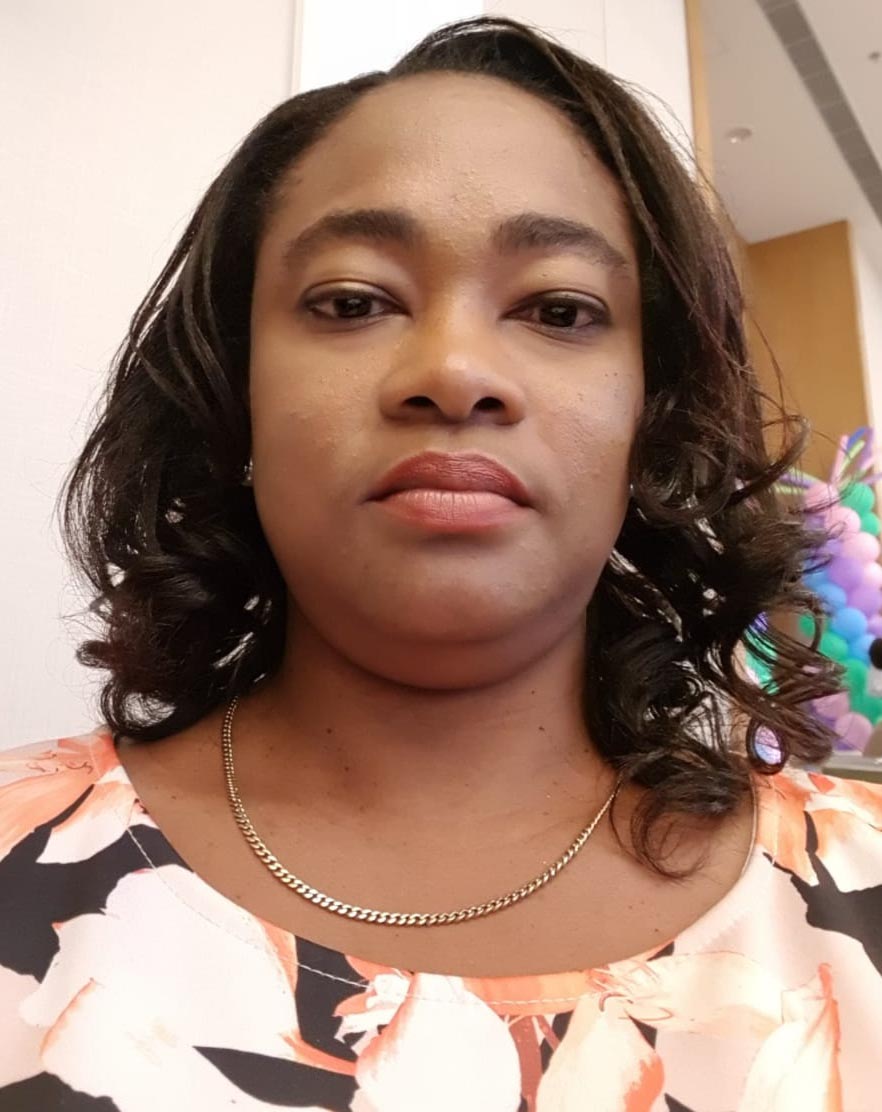John’s (not his real name) gait is confident, his shoulders are arched, and he smiles as he greets me, giving the sense that all is well. But a few minutes later his shoulders are slumped, and he fights back tears. None make it to the surface.
“I would like to get a family, but I don’t know…,” he trails off staring into space. “I really don’t want to live here forever, but I don’t know if I would get adopted,” he continues.
John is 11 years old, and one of the children in state care whom the Childcare and Protection Agency (C&PA) hopes will get adopted. But it is difficult to get children as old as him adopted, as many persons are interested in babies or toddlers.

“Every child needs a home, a permanent family. Why would we want to deny a child a family? There are ways for them to be a part of a family even if they have children within their home. We want the child to have the experience of a mother and a father [but] we also allow single parents to adopt. We would not deny a single person if they want to adopt, we welcome anyone who wants to do such,” Kaycina Jardine, Manager of the agency’s Adoption Unit, tells Stabroek Weekend.
It is difficult for the unit to get children between the ages of 10 and 16 adopted, but both Jardine and C&PA Director Ann Greene are appealing to members of the public to consider providing a home for children like John.
Abandoned
As regards John, Greene says, it is a case of feeling abandoned when the only human being, whom he refers to as his grandmother, died and he was not allowed to heal. This saw him throwing tantrums and the woman’s daughter was not prepared to take care of him.
“He has no home [and we want] to find a home for him… or he would have to live in an institution, and we are moving away from that. Everybody wants to adopt a baby, but we have some grown children who can be adopted and find a good home with a family,” Greene says.
For John, finding a family is what he wants, but he has also resigned himself to ageing out in the system as he related that if he is still there by the age of 18 he would have to go and live in the halfway house.
“I would have to find a job and stay there…,” he says.
“I don’t know my biological mother. I remember one time in 2015 she come and say how she is me mother and she and me grandmother cuss up. But I don’t know she,” he says when asked.
He relates that he was told his mother gave him to the woman he referred to as his grandmother.
“She give them away too… I is the last,” he responds when asked if his mother has more children.
He does not know his father and the woman he called his grandmother was not related to either of his parents.
“It is just me, you know, throwing them tantrums that is why me mother don’t want me to live with her,” he says, referring to his ‘grandmother’s daughter’ and the last place he called home.
It was because of the tantrums that she took him to the agency and indicated that she could no longer take care of him.
Asked if he was abused John quickly responded in the negative and said he was well taken care of.
“If I could see she, I would tell she I guh come and live with she when I get big and when I work I would give she if is $5,000…,” he says, his head bent and fighting to hold back the tears.
Throughout the conversation he remained jovial except when he referred to the death of his grandmother and not being able to live with the woman he now calls ‘mommy’. Whenever he speaks of his mother he is visibly angry while when thinking about his future he becomes optimistic.
He is optimistic that he will become a good cricketer. He says he loves cricket and is very good at it. Before being placed in an institutional home he was a member of a cricket team and actually played for the Guyana Under-11 team, according to Director Greene.
According to John, it has been five months since he is at the home. This is his second time there. He was there prior, but his ‘mommy’ decided to give it another try. However, shortly after she returned him.
“I was there and she telling me go and bathe and I telling she I don’t want to go and me brother [the woman’s son] telling me bathe and is like I get vex and you know I starting throwing things,” he says sadly.
‘A lovely child’
“But he is a lovely child and he needs someone to love,” Greene says of John.
“It is just the pain issue that is how he throws the tantrums. Not having the maternal [love],” she continues.
John is at the care centre, which accommodates children and families but not for long periods, and from there he would have to go into an institutional home if he is not adopted, according to Greene.
She notes that some of the children at centre are returned to their parents or relatives once the agency works with them. Those children who are unable to go with a relative, they hope that they will be adopted and not be placed in institutional home.
“Ageing out of an institution is not a good thing. You go out into the world with no linkages to a family,” Greene says and when asked about the halfway home she says while that is available, the individual still needs linkage to a family.
“When it is Christmas time, you should have some where to go and get Christmas dinner, to celebrate your birthday. If they are setting up an apartment they would want to bring someone to see. Have to get a link with a family,” Greene maintains adding that research has shown children who age out of institutional care have fared badly.
In an effort to address the lack of linkage for those who are not adopted, Greene says they have developed a mentoring programme which links them with a family because it is really traumatic for a child to go out into the world with no family.
“We have to take enough time to understand children… if it is not dealt with at childhood they going out into the world as messed-up adults. They did not get that way overnight that is why we are doing everything, looking for people to adopt and mentor children,” Greene says.
Greene says the agency will help parents to understand the children they are adopting as she notes, it “would take time understanding them because they have pain issues”.
These issues include perceived rejection and abandonment.
“Your own children would act up, think about those children,” she says.
Responsibility
According to Jardine, it is the unit’s responsibility to ensure such children like John have a home.
She says if the agency has exhausted all avenues to have the child placed with a biological family or other relatives then they have to explore other avenues. She notes that some of the children are abandoned or removed from their home because of abuse.
“They are children who have suffered because of lack of parenting skills and other issues,” she says.
It is the hope of the unit that family members would come forward to explore whether they can work with the children while receiving support from the agency.
“We are focusing on adoption when all the options would have been explored and failed. Don’t want the system to fail, it is their responsibility to give the children a home,” Jardine stresses.
She points out that a long period in institutional care for children will see them becoming institutionalised and they are affected.
“Institutional care is for temporary care, it was not meant for children to age out. The institution cannot provide all of the things for those children,” she says.
And for parents who prefer to adopt babies, Jardine questions why they should choose a baby over a child or maybe a 10-year-old. “They are all children. Even though they [the older ones] might have their experiences, you still have an opportunity to instill those values. You can sit that child down and learn of them and learn of their experiences,” she said.
She points out that there are those who care for a niece or a nephew and while agreeing that those children would be the individual’s blood relative, Jardine maintains that there is hardly any difference as they would still get an opportunity to instill values into that child.
“We appeal to the good sense of people, we appeal to people who really want to have children, it is about imparting into a child’s life, giving back to your country,” she says.
Instead of just taking gifts and food to the homes at Christmas time and other holidays, persons can instead get the opportunity to adopt a child and have them to mentor and care for and build their self-esteem as a lot of them are emotionally broken, she adds.
“We are hoping it becomes a national interest for persons to do such. You don’t know what blessing… may come to you,” she further says.
Persons can visit the CC&PA and get adoption forms. If the child is a non-relative they will have to fill up a profile, giving information about themselves. The individual will then be assessed, and an investigation will be done to ensure that the information given is correct.
Once that is done they will be given an opportunity to adopt a child, which is not a one-off process, but they will be assisted all through the various stages.
Build his own home
Apart from becoming a “famous cricketer”, John says he will eventually build his own home and have a family of his own.
“I want to have a house and my friends will come over and we would play cricket and so…,” he says.
Asked if he wants to say anything to his biological mother if she reads this story, John demurs. He has nothing to say to her. However, he wants to say a lot to the woman he calls his ‘mommy’ and he apologizes for throwing tantrums.
“She provide a good home for me. She never abuse me, or anything is just like when a throwing the tantrum you know when a think of me grandmother and so, how she use to treat me good. But she don’t want me by her now and when I get big I would go and live with she,” he says.
He will write the National Grade 6 Assessment come July and he hopes to gain a place at the Bishops’ High School.
“I don’t really get any problem here, you know, I have friends and so and if I get a home I would go but if I don’t get adopted then I have to live here until I big,” the young boy says.
Greene longs to provide a home for John as she sees so much potential in him and hopes that someone gives him the opportunity to be a part of a family.
“He is a lovely child, I know he has pain issues and he would act out sometimes. He needs care, love and understanding security, that is what he needs,” she notes.





